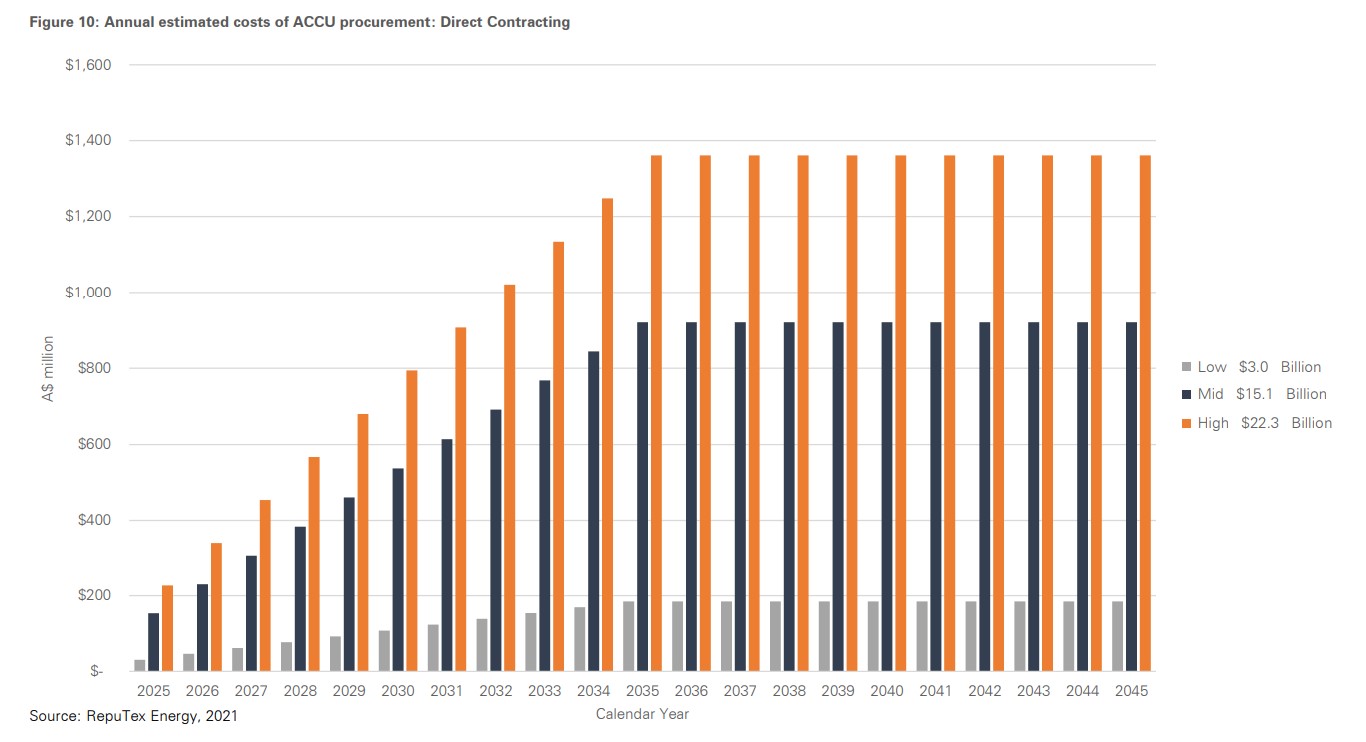The Northern Territory government is facing an annual carbon offset bill as high as $1.36 billion a year to account for the emissions from fracking in the Beetaloo Basin, a cost so large it could make the industry economically unviable.
New analysis from Reputex suggests that taxpayers could be lumped with a bill as big as $22 billion over 20 years for carbon offsets due to a forecast surge in emissions as fracking activity ramps up over coming decades.
Reputex, a leading carbon market analyst, has completed an in-depth economic and climate analysis of the NT’s gas expansion plans, which estimates the expansion of gas extraction in the Beetaloo and Macarthur Basins could be responsible for up to 1.4 billion tonnes of greenhouse gas emissions over 20 years.
Based on forecast prices for government-issued Australian Carbon Credit Units, the cost of offsetting these emissions would reach $22 billion. Reputex says that such a cost would likely make the expansion of the Northern Territory’s gas industry economically unviable.
“The inclusion of carbon costs is likely to have significant implications for the commercial viability of Northern Territory gas basin projects, with potential for emissions liabilities to add between $1 – $2.5 per GJ to the cost of Beetaloo basin gas, varying with the modelled production scenario,” the Reputex analysis says.
Reputex modelled three different scenarios – based on gas production ramping up to different levels – finding that even under a “low” scenario, the NT government could face a bill of $3 billion for offsets over the next 20 years.

There has been a surge in interest in fracking in the Beetaloo Basin after the Morrison government identified the region as one of its priority areas. At least ten companies are already active in the region, including Origin Energy, Inpex, Santos and Gina Rinehart’s Hancock Prospecting.
After initially introducing a moratorium on fracking in the territory in 2016, a cash-strapped NT Government opened up the territory to gas exploration just two years later, lured by the prospect of significant royalties.
As part of its approach to managing the environmental impacts of fracking, the Northern Territory government has committed to offsetting the life-cycle emissions caused by new gas projects built in the Beetaloo Basin, in line with the recommendations of an enquiry into the Territory’s fracking industry undertaken by NSW Land and Environment court justice Rachel Pepper.
In addition to significant uncertainties around impacts to land and water resources, fracking contributes to a significant loss of escaped fossil gas, known as fugitive emissions.
These fugitive emissions are mostly methane gas, a potent greenhouse gas with 28 times the global warming potential than carbon dioxide over 100 years.
Reputex says that in an alternate scenario where the extra greenhouse gas emissions are not offset, Australia could struggle to meet future emissions reduction targets, and the projects themselves run a significant risk of becoming stranded assets.
“Beetaloo basin gas emissions represent a large source of additional GHG emissions entering the Australian economy at a time when rapid global emission reductions are necessary to limit the effects of global warming. To this end, new oil and gas fields from 2021 have been modelled by the IEA to be inconsistent with a net-zero pathway,” Reputex adds.
“The development of the Beetaloo Sub-basin under a mid to high scenario, resulting in 368-523 Mt of GHG emissions over 20 years, is likely to have a significant impact on Australia’s remaining carbon budget, with modelled outcomes representing between 3 to 5 per cent of Australia’s remaining carbon budget remaining (2°C scenario). For a 1.5°C scenario, Beetaloo Sub-basin gas could represent 10 to 27 per cent of Australia’s total carbon budget.”
The Lock the Gate Alliance, which has opposed the expansion of gas exploration and extraction in the Beetaloo Basin, said the analysis further highlighted the problems with the Northern Territory fracking industry and the amount of public funding provided to support such projects.
“This report reveals trying to frack the Beetaloo does not stack up economically. No wonder fracking companies have so eagerly asked for handouts from Australian taxpayers,” Lock the Gate national coordinator Naomi Hogan said.
“It’s expensive gas and it’s highly polluting. Fracking the Northern Territory for oil and gas will take Australia in the wrong direction.”
“This report clearly outlines that the push by governments and gas companies for large-scale fracking across the Northern Territory will lead to a massive increase in Australia’s pollution. There needs to be a reality check here. We can’t frack our way out of the climate crisis.”
The Morrison government has poured significant amounts of public funding into projects to support a surge in gas projects in the Northern Territory as part of its ‘gas led recovery’.
This includes $21 million in grants provided to Empire Energy to fund the drilling of three gas wells – after the company attended a Liberal Party fundraising event and paid for federal energy minister Angus Taylor and swath of other Liberal Party figures to visit their operations.
The NT Government has been contacted for comment.






